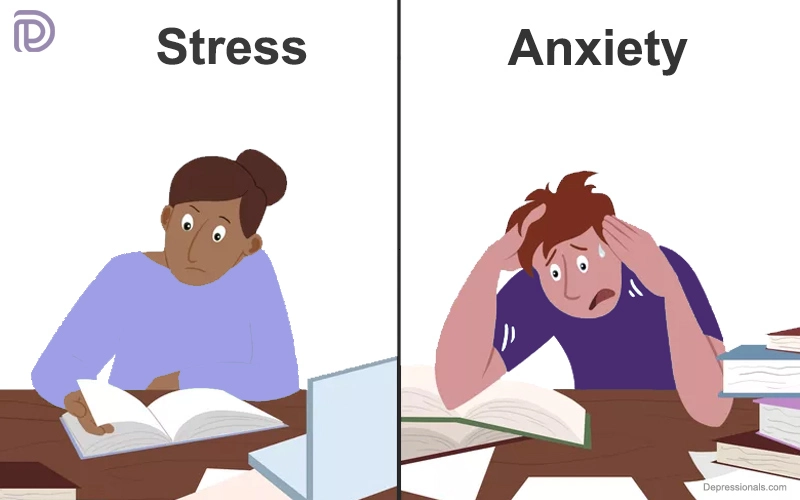You’re not alone if you’re worried about money. The economy is a major source of financial stress for adults in the United States. 72% of Americans say that they feel stressed about money, whether they are worried about paying rent or burdened by debt, according to the American Psychological Association. The association between financial stress and health issues is quite profound.
What is financial stress?
Stress related to money is called financial stress. Financial stress can affect anyone, but it may happen more often in households with low incomes. You can feel stressed when you cannot afford to pay rent, bills and groceries.
The stress of a job might be greater for people with less income. It is also possible that their jobs aren’t flexible enough to allow time off. They might be working in dangerous environments, but they are afraid of leaving because they will not be able to support themselves financially while seeking out another job.
In addition to lack of financial resources, those with low incomes are less likely to have access to health insurance for mental health treatment.
Money is something that stresses most people occasionally. When this stress interferes with your everyday life, though, it becomes problematic. If you are stressed out because of money-related worries, you may find it difficult to concentrate or enjoy other parts of your life.
Your mental and even physical health can be damaged by severe financial stress. Behavioral changes, such as a withdrawal from social activities or stomachaches, may result from financial stress.
Get in touch with a healthcare professional if you experience any side effects from your financial stress.
Read: Economic Stress
Stress affects your health
Health problems can be exacerbated by financial stress, but the stress caused by other issues is especially damaging. When you are stressed financially, you may experience:
Delayed health care
People whose financial situation is already stressed tend to cut corners in areas they shouldn’t, such as health care when there is less money in the budget. The cost was a factor for 29% of American adults who avoided seeking medical care in 2018, according to Gallup’s annual Health and Healthcare poll.
Although delaying medical care may seem like a good way to reduce costs, research has shown that it often leads to poorer health outcomes and higher costs, both of which can cause stress.
Poor mental health
Psychological well-being influences financial health in many ways-poor financial well-being can lead to poor mental well-being, and so on. Researchers have long discovered that people with debt suffer from more mental health problems, such as anxiety and depression than those with no debt.
Check all: Psychological Disorders
Poor physical health
People who are continually stressed out about money have a tendency to suffer from headaches, stomachaches, migraines, heart disease, diabetes, sleep problems and more. Constant stress leaves our bodies in a state of limbo, unable to recover.
This leaves us vulnerable to illnesses, including colds and viruses. It is possible to experience flare-ups of your symptoms if you already suffer from a chronic medical condition.
Poor coping strategies
From overeating to drinking and using drugs, financial stress can lead to unhealthy behavior. The American Psychological Association published a survey in 2014 that found 33% of Americans eat unhealthy foods or consume too much food while stressed.
Related: 12 Simple Ways to Reduce Stress
How to cope with financial stress
You can gain control of your life by managing your financial situation effectively, reducing stress, and building a more secure financial future. To get started, follow these tips for financial stress management:
- Create extra sources of income: You likely have already felt that more money is needed in your budget if you are stressed about finances. Yet you may find it challenging to increase your financial holdings without causing yourself a lot of stress. We have several ways to help you earn more money and reduce your stress level.
- Organize your budget: To keep your finances in good shape, it’s essential to have regular budget checkups, since life is rarely constant. By scheduling, organizing, and decluttering your bank account’s money coming and going, you’ll be in control of your finances. This will reduce your stress.
- Do not forget about reducing general stress: By reducing stress through stress-reduction techniques and making other lifestyle changes to create a low-stress life as you improve your financial situation, you can reduce stress levels. It is linked to lower levels of stress to eat a healthy diet, sleep enough and exercise regularly. Meditation and yoga are also helpful ways to reduce anxiety.
- Learn about the debt cycle: It is essential to understand debt before you can resolve it. According to one study, paying off your lowest debts first and paying off one account at a time may help you pay off your debt quicker. Be aware of interest rates as well. If you want to avoid paying higher costs over time, you should pay off the debt with the highest interest rate first.
Related: Stress Management Techniques
Overcoming financial stress
Your financial problems might not be resolved overnight, but you can start planning for success as soon as possible. Remember, the stress you are experiencing isn’t solely due to your financial situation. By taking care of yourself, you can alleviate some of your anxiety.
Organize your finances
Write down the financial challenges you are most concerned about. Taking baby steps will ensure that you do not overwhelm yourself with problems.
Consider what actions you can take today or this week to help you achieve financial stability. Create a budget plan for a week or a month that only includes expenses for necessities.
Keeping track of your expenses is also an option. Keeping a track of how much you spend each day or week can help you cut costs.
You may need professional financial guidance. Several income-based repayment programs and student loan forgiveness programs are available that can provide a more manageable way to repay your debt.
Try contacting your bank, utility company, or credit card company for help if you cannot pay your bills. They may be able to offer you a payment plan that suits your needs.
Read: Stressful Life Events
Reach out for support
You may find it helpful to reach out to your friends and family for support. If you’re struggling with financial stress, you might consider attending a support group. Don’t feel alone. Maintaining optimism about your finances is possible by maintaining a network of trusted friends and family.
Related: How to Seek Help for Mental Illness
Be kind to yourself
Keeping a healthy lifestyle is vital to reducing stress. Whenever you feel comfortable, move your body for 30 minutes a day. You’ll feel better both physically and mentally. Getting a workout in while relieving stress is possible when you walk.
Take some time for yourself. Although financial stress can be overwhelming, you should remember that there are resources available to help you manage your financial stress. You should take time out to relax, meditate, enjoy fun activities, and connect with others.
Words from Depressionals
You need to be open about your concerns if you feel your financial situation is too stressful for you to handle. Speak with trusted family and friends about your money worries.
Talking through your concerns with your support system will reduce your stress and isolation, even if you don’t need to go into detail. Even your family members may be able to offer new insights into what you could do differently to overcome your financial issues.






Loving the information on this web site, you have done great job on the articles.
Only wanna input that you have a very nice internet site, I enjoy the layout it actually stands out.